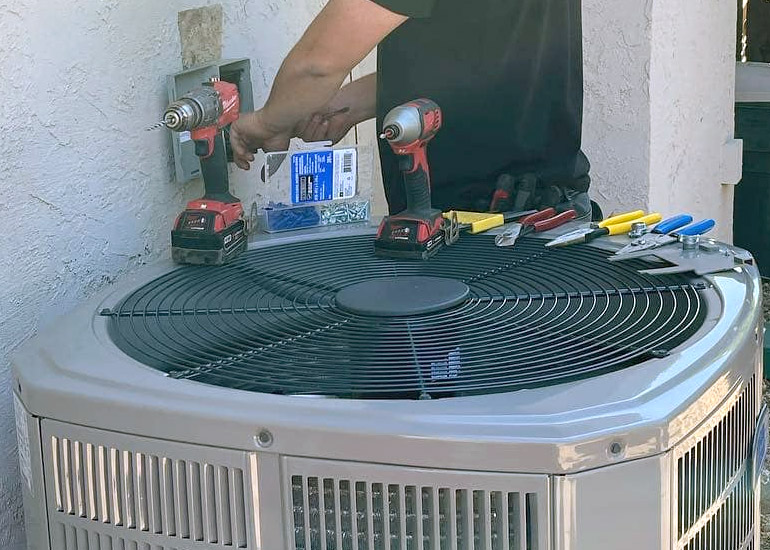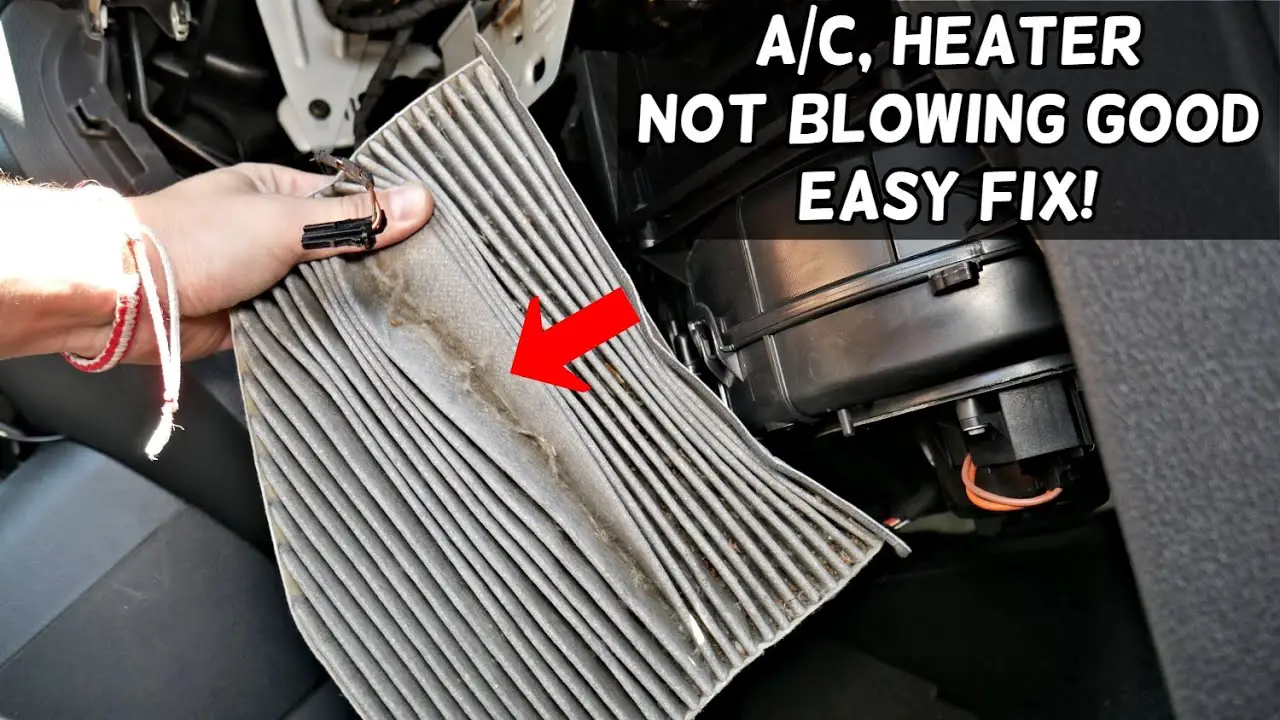An air conditioner fuse blown can disrupt your cooling system and needs immediate attention. It typically results from electrical issues.
Blown fuses in air conditioners are common problems homeowners face, particularly during peak usage times. Fuses protect your unit from electrical surges and can blow due to overheating, old age, or faulty wiring. Identifying a blown fuse is straightforward: your air conditioner stops working, and the fuse appears visibly damaged.
Replacing a fuse is usually a simple task, but pinpointing the underlying cause is crucial to prevent future issues. Regular maintenance and timely inspections can help in avoiding such disruptions. Always consult a professional if you’re unsure about handling electrical components for safety and efficiency.
Common Causes
Air conditioner fuses can blow for several reasons. Understanding these causes can help prevent future issues. Below are some common reasons why your air conditioner’s fuse may blow.
Power Surges
Power surges are sudden increases in electrical power. They can overload the circuit. This can cause your air conditioner’s fuse to blow.
Common sources of power surges include:
- Lightning strikes
- Faulty appliances
- Power grid issues
To protect your air conditioner, consider using surge protectors. This can help manage unexpected spikes in power.
Faulty Wiring
Faulty wiring can also cause fuses to blow. Wires may wear out over time. This can lead to short circuits.
Signs of faulty wiring include:
- Flickering lights
- Burning smells
- Tripped breakers
If you notice these signs, have a professional inspect your system. They can fix the wiring and prevent future issues.
Overloading
Overloading occurs when too many devices draw power from the same circuit. This can cause your air conditioner’s fuse to blow.
Common causes of overloading include:
- Running multiple heavy appliances simultaneously
- Using high-wattage devices on the same circuit
To prevent overloading, spread out your appliance usage. This can help reduce the strain on your electrical system.
Symptoms
Experiencing a blown air conditioner fuse can be frustrating. Recognizing the symptoms early can save you time and money. Here are some key symptoms to watch for:
Unit Not Turning On
If your air conditioner doesn’t start, it could be a blown fuse. Check the power supply and ensure the unit is plugged in. If the fuse is blown, the unit won’t receive power.
Frequent Tripping
Your air conditioner may trip the circuit breaker often. This can be a sign of a blown fuse. Frequent tripping indicates an underlying electrical issue. Inspect the fuse to see if it’s damaged.
Unusual Noises
Listen for any strange sounds from the unit. Unusual noises like buzzing or humming can signal a fuse problem. A blown fuse can affect the fan and compressor, causing odd sounds.
Safety Precautions
When dealing with a blown air conditioner fuse, safety is paramount. Following the right precautions can prevent accidents and ensure a smooth repair. Here are some essential safety measures to follow.
Turn Off Power
The first step is to turn off the power to your air conditioner. This prevents any electrical shock. Locate the circuit breaker panel in your home. Flip the switch for the air conditioner to the “off” position.
Make sure the unit is completely disconnected from power. Double-check by trying to turn the unit on. It should not respond if power is properly off.
Use Proper Tools
Using the right tools ensures safety and efficiency. Gather a set of insulated screwdrivers and pliers. These tools protect you from potential electric shocks.
Avoid using makeshift tools. They can lead to accidents and damage the unit. A toolset designed for electrical work is a smart investment.
Wear Protective Gear
Protective gear is essential for any electrical work. Wear insulated gloves to protect your hands. Safety goggles shield your eyes from any flying debris.
Long-sleeved clothing adds an extra layer of protection. Ensure your clothes are not loose, as they can get caught in components.

Credit: diy.stackexchange.com
Locating The Fuse
When your air conditioner stops working, a blown fuse might be the cause. Locating the fuse can seem tricky, but it’s easier if you follow these steps. Here’s how you can find the fuse and check if it’s blown.
Check Manual
First, get the air conditioner manual. The manual often has a section about the fuse.
- Look for the troubleshooting section.
- Find details about the fuse location.
- Follow the instructions carefully.
Identify Fuse Box
Next, you need to find the fuse box. The fuse box is usually near the air conditioner unit.
- Check around the outdoor unit.
- It might be a small, metal box.
- Use a screwdriver to open it.
Use Multimeter
To check if the fuse is blown, use a multimeter.
- Set the multimeter to the continuity setting.
- Touch the multimeter probes to the fuse ends.
- If there is no beep, the fuse is blown.
Using a multimeter helps to know if the fuse needs replacing.
Replacing The Fuse
If your air conditioner stops working, a blown fuse may be the culprit. Replacing the fuse is a simple task that can restore your unit’s functionality. Follow these easy steps to get your air conditioner back up and running.
Remove Old Fuse
First, turn off the power to the air conditioner. This is a critical safety measure. Locate the fuse box, usually found near the unit or in your home’s electrical panel. Use a screwdriver to open the fuse box cover. Carefully pull out the old fuse. You can use a fuse puller tool or your fingers. Place the old fuse aside for proper disposal.
Insert New Fuse
Check the fuse rating before inserting a new one. Make sure it matches the old fuse’s rating. This information is often printed on the fuse itself. Insert the new fuse into the slot where you removed the old one. Push it in firmly until it is secure. Close the fuse box cover using your screwdriver.
Test The Unit
After replacing the fuse, turn the power back on. Switch on your air conditioner to check if it works. Listen for the sound of the unit starting up. Feel for cool air coming from the vents. If it runs smoothly, you have successfully replaced the fuse.
Here’s a quick checklist:
- Turn off power
- Locate and open fuse box
- Remove old fuse
- Insert new fuse
- Close fuse box
- Turn power back on
- Test air conditioner
Replacing a blown fuse is easy and quick. This guide helps ensure your air conditioner works efficiently.
Preventive Measures
Experiencing a blown fuse in your air conditioner can be frustrating. Taking preventive measures can help you avoid this issue. Here are some effective strategies to keep your air conditioner running smoothly.
Regular Maintenance
Regular maintenance is crucial for your air conditioner. Schedule professional checks at least twice a year. Clean the air filters every month. Ensure the condenser coils are free of debris. Inspect electrical connections for wear and tear. Proper maintenance extends the life of your unit.
Avoid Overloading
Avoid overloading your air conditioner. Do not set the thermostat too low. Keep doors and windows closed while the AC is running. Use ceiling fans to help distribute cool air. These practices reduce the strain on your unit.
Install Surge Protectors
Surge protectors can save your air conditioner from power surges. Power surges can cause a fuse to blow. Install a surge protector to safeguard your unit. Choose a protector with the right voltage rating for your AC. This simple step can prevent costly repairs.
When To Call A Professional
Experiencing a blown fuse in your air conditioner can be frustrating. While some issues can be resolved easily, certain situations require professional help. Knowing when to call a professional can save you time and ensure your air conditioner works efficiently.
Persistent Issues
If your air conditioner frequently blows fuses, there might be a deeper problem. Persistent issues indicate that simple fixes won’t work. A professional can diagnose and fix the root cause.
Complex Wiring
Air conditioners have complex wiring systems. Incorrect wiring can lead to serious problems. Attempting to fix wiring issues yourself can be dangerous. Professionals have the skills and tools to handle complex wiring safely.
Safety Concerns
Working with electrical components can be risky. Professionals have the training to handle these risks. They follow safety protocols to prevent accidents. It’s always safer to let an expert handle electrical repairs.
| Issue | Why Call a Professional |
|---|---|
| Frequent Fuse Blows | Indicates a deeper problem needing expert diagnosis. |
| Complex Wiring | Requires specialized tools and knowledge. |
| Safety Concerns | Professionals follow strict safety protocols. |
Remember, calling a professional ensures your air conditioner is fixed correctly. It also keeps you safe from potential hazards.

Credit: www.youtube.com
Cost Considerations
Experiencing a blown fuse in your air conditioner can be frustrating. Understanding the costs involved can help you prepare. Let’s break down the costs associated with replacing a blown fuse in your AC unit.
Replacement Fuse Costs
The cost of a replacement fuse varies. Standard fuses are usually inexpensive. You can expect to pay between $5 to $15 for a single fuse. Specialty fuses may cost more. It’s wise to check your AC model and fuse type.
| Fuse Type | Cost Range |
|---|---|
| Standard Fuse | $5 – $15 |
| Specialty Fuse | $20 – $50 |
Professional Service Fees
Hiring a professional ensures the job is done right. Service fees vary based on location and complexity. Expect to pay between $50 to $150 for labor. Some technicians might charge a flat rate. Others may charge hourly. Always ask for a quote before proceeding.
Long-term Savings
Investing in a professional service can save you money long-term. Proper installation reduces the risk of future issues. This can extend the life of your air conditioner. Regular maintenance also helps in identifying potential problems early. Saving you from costly repairs down the road.
Consider creating a maintenance schedule. This ensures your air conditioner runs smoothly. It also helps in preventing unexpected breakdowns.

Credit: www.irishheatandair.com
Frequently Asked Questions
What Causes An Air Conditioner Fuse To Blow?
A blown fuse can be caused by electrical issues, dirty filters, or a malfunctioning compressor. Regular maintenance helps prevent this.
How Do I Know If My Ac Fuse Is Blown?
If your AC stops working and there’s no power, the fuse might be blown. Check the fuse box.
Can I Fix A Blown Ac Fuse Myself?
Yes, you can replace a blown fuse if you know how. Always turn off the power first.
How Often Should Ac Fuses Be Replaced?
AC fuses don’t need regular replacement. Replace them only if they blow due to an issue.
Conclusion
A blown fuse in your air conditioner can cause discomfort and inconvenience. Regular maintenance and prompt troubleshooting are key. Addressing fuse issues quickly ensures your unit runs efficiently. Stay cool and comfortable by keeping an eye on your AC’s health.
Proper care can prevent future problems and extend your air conditioner’s lifespan.

